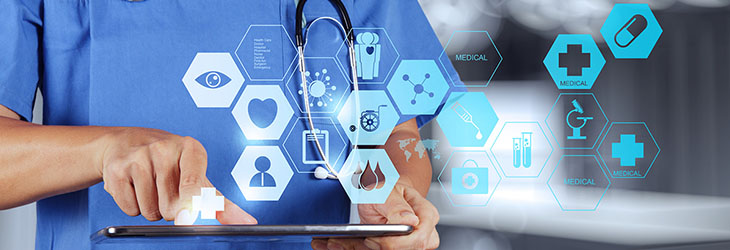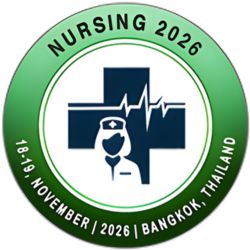Track: Nursing and healthcare informatics

Health Care Management and Technology Adoption
Health care management and technology adoption integrate modern
technologies into healthcare systems to improve efficiency, patient care, and
outcomes. This involves managing resources, implementing digital tools, and
streamlining operations. Technology adoption fosters innovation, enabling
data-driven decisions and enhancing healthcare delivery.
E-Learning in Health Care Settings
E-learning in healthcare provides online education and training
for healthcare professionals. It enables flexible learning, up-to-date
knowledge, and skill development using digital platforms. This approach
supports continuing education, improves access to resources, and enhances
competency in a rapidly evolving healthcare environment.
Decision Modeling and Natural Language Processing
Decision modeling and natural language processing (NLP) enhance
healthcare by using algorithms and data analysis to improve decision-making.
NLP processes unstructured text, such as medical records, for insights, while
decision models guide clinical and operational strategies. Together, they
support precision medicine and efficient healthcare management.
Disease-Based or Specific Clinical Issues
Disease-based or specific clinical issues focus on understanding
and managing particular illnesses. This includes research, diagnosis,
treatment, and prevention strategies tailored to individual diseases.
Addressing specific conditions ensures targeted interventions, improved
outcomes, and advancements in specialized care.
Health Information Safety and Security
Health information safety and security protect patient data from
breaches and unauthorized access. It ensures compliance with legal standards,
maintains confidentiality, and safeguards electronic health records. Strong
security measures are vital for building trust and supporting the digital
transformation of healthcare systems.
Scientific Highlights
- Nursing in Healthcare
- Nursing Education and Research
- Primary Health Care
- Nursing and healthcare informatics
- Nursing in Women's Health
- Pediatrics and Neonatal Nursing
- Critical Care and Emergency Nursing
- Occupational nursing and Safety Health
- Role of Nurses in Covid 19 Pandemic
- Midwifery
- Patient Safety and Nursing Care Quality
- Infection, Prevention and Control
- Gynecology and Obstetrics
- Cervical Cancer
- Pregnancy Care and Child Birth
- Sexually Transmitted Diseases (STD)
- Urogynecology


